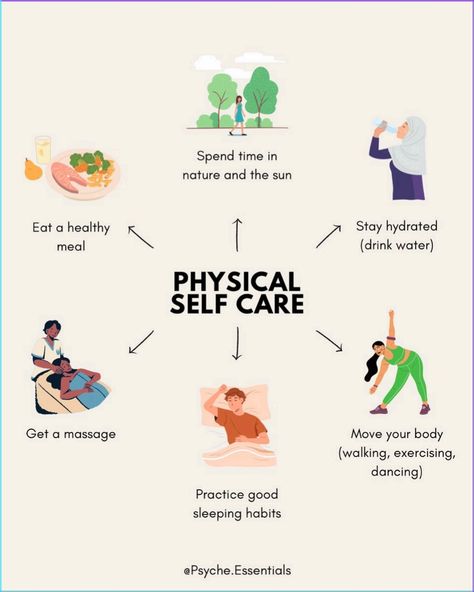In the pursuit of fitness and overall well-being, we often focus on diet and exercise while neglecting a crucial component: sleep. Quality sleep is an essential pillar of health that significantly impacts physical performance, recovery, and mental clarity. Understanding the role of sleep in fitness can help you maximize your workouts and enhance recovery. Here’s a comprehensive look at why sleep matters and how to improve your sleep quality for better fitness outcomes.
Why Sleep is Crucial for Fitness
1. Muscle Recovery and Growth
During sleep, your body undergoes vital repair processes. Muscle tissue that has been broken down during workouts is rebuilt stronger, a process driven by hormones like growth hormone (GH) and testosterone. These hormones peak during deep sleep, making it crucial for muscle recovery and growth.
2. Energy Restoration
Quality sleep replenishes your energy levels. When you sleep, your body restores glycogen levels in muscles, which is essential for fueling your workouts. Inadequate sleep can lead to fatigue, reducing your motivation and performance during exercise.
3. Hormonal Balance
Sleep plays a significant role in regulating hormones that affect appetite and metabolism, including ghrelin (which stimulates hunger) and leptin (which signals fullness). Poor sleep can lead to an imbalance, increasing cravings for unhealthy foods and potentially leading to weight gain.
4. Mental Focus and Motivation
Adequate sleep improves cognitive function, mood, and motivation. A well-rested mind is better equipped to make sound decisions, maintain focus during workouts, and stay committed to fitness goals. Conversely, sleep deprivation can lead to irritability and reduced motivation to exercise.
5. Injury Prevention
Lack of sleep increases the risk of injuries during workouts. Sleep deprivation can impair coordination, balance, and reaction times, making you more prone to accidents and injuries. Prioritizing sleep can help you stay safe and perform at your best.
Sleep and Performance
Research indicates that athletes and fitness enthusiasts who prioritize sleep experience improved performance. Here’s how sleep directly affects various aspects of fitness:
Endurance
Studies have shown that sleep-deprived athletes experience decreased endurance and increased fatigue during long-duration activities. Well-rested individuals can sustain longer periods of intense exercise, making adequate sleep vital for endurance training.
Strength
Quality sleep is linked to increased strength and power output. Athletes who sleep well demonstrate improved performance in strength tests, showcasing the relationship between sleep and physical capabilities.
Reaction Time and Coordination
Sleep deprivation negatively affects reaction time and coordination. This is particularly important for athletes participating in sports that require quick decisions and precise movements. Sufficient sleep enhances overall athletic performance by improving these critical skills.
Tips for Improving Sleep Quality
To harness the benefits of sleep for fitness and recovery, consider the following tips for improving sleep quality:
1. Establish a Consistent Sleep Schedule
Going to bed and waking up at the same time every day helps regulate your body’s internal clock. Consistency reinforces the sleep-wake cycle, promoting deeper and more restorative sleep.
2. Create a Sleep-Conducive Environment
Optimize your sleep environment by keeping your bedroom dark, cool, and quiet. Consider using blackout curtains, earplugs, or a white noise machine to minimize disturbances. A comfortable mattress and pillows are also essential for a good night’s sleep.
3. Limit Screen Time Before Bed
The blue light emitted by screens can interfere with the production of melatonin, the hormone responsible for sleep regulation. Aim to turn off electronic devices at least an hour before bedtime to promote better sleep.
4. Develop a Relaxing Pre-Sleep Routine
Engage in calming activities before bed, such as reading, meditation, or gentle stretching. A consistent bedtime routine signals to your body that it’s time to wind down and prepare for sleep.
5. Be Mindful of Food and Drink
Avoid heavy meals, caffeine, and alcohol close to bedtime, as they can disrupt sleep quality. Opt for light snacks if you’re hungry, and consider herbal teas known for their calming effects.
6. Incorporate Regular Exercise
Regular physical activity can help you fall asleep faster and enjoy deeper sleep. However, avoid intense workouts close to bedtime, as they may interfere with your ability to wind down.
7. Manage Stress
Chronic stress can significantly impact sleep quality. Incorporate stress-reducing techniques such as mindfulness, yoga, or deep-breathing exercises to promote relaxation and better sleep.
Conclusion
Sleep is a fundamental component of fitness and recovery that should not be overlooked. By prioritizing quality sleep, you can enhance your athletic performance, promote muscle recovery, and improve overall health. Recognizing the critical role of sleep in your fitness journey empowers you to make informed choices that will lead to long-term success. Embrace the importance of rest, and watch as your workouts and recovery improve, paving the way for a healthier and more balanced life.
